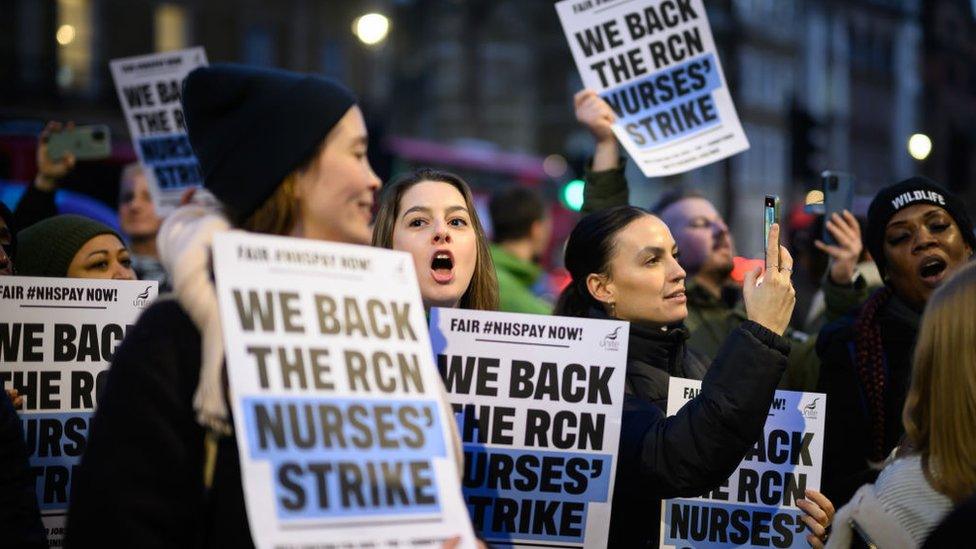Ambulance staff and nurses to strike on same day
- Published
- comments
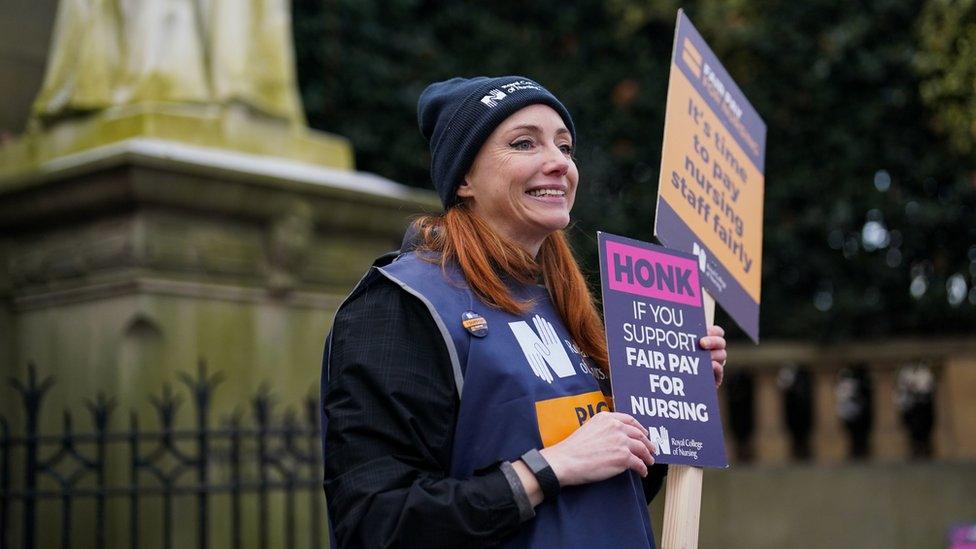
Ambulance workers are to join nurses in taking strike action on 6 February in England and Wales in what will be the biggest NHS walkout in this dispute.
The GMB announced four new stoppages for ambulance staff - one of which coincides with a nurses' strike date.
It is the first time both ambulance staff and the Royal College of Nursing (RCN) have acted on the same day.
It comes as RCN members are taking part in two days of strikes on Wednesday and Thursday this week.
GMB national secretary Rachel Harrison said: "Ambulance workers are angry. Our message to the government is clear - talk pay now."
The walkouts by staff including paramedics, call handlers and support workers in seven of the 10 English ambulance services along with the national Welsh service will take place on 6 and 20 February, and 6 and 20 March.
On Monday, the RCN set 6 and 7 February as the dates for its biggest strike to date, involving more than a third of services in England and all but one health board in Wales.
Under trade union laws, both unions will have to provide emergency cover.
But it raises the prospect of urgent 999 calls for falls not being responded to, and a huge chunk of pre-planned hospital care such as hernia repair, hip replacements or outpatient clinics not being done.
The call to get round the negotiating table was echoed by RCN general secretary Pat Cullen as her members walked out on Wednesday for the third time this winter.
"We have extended an olive branch, in fact the whole tree, to government. We've said meet us halfway, so now come on."


Hospital bosses have not been vocal during this dispute so far and access to hospitals has been very limited.
But one of London's largest hospitals opened the doors to us to show us the effects of strikes.
At University College Hospital in London a specialist surgical centre usually sees 20 or more operations carried out each day for orthopaedic and ear/nose and throat cases.
But the operating theatres on strike days are empty and silent.
The Royal College of Nursing has agreed that emergency care will not be affected but across the trust two-thirds of non-urgent operations have been cancelled and about one-in-seven outpatient appointments.
More than 2,000 patients are missing out on planned procedures or appointments.
David Probert, chief executive of University College London Hospitals Trust, has appealed to unions and ministers to resolve a dispute which he says is "hugely disruptive".
He says settling the pay row is about motivating and retaining staff as well as avoiding cancellations for patients.
"My message", Mr Probert said, "and that of many chief executives around the country is that this needs resolution - we cannot continue to go through periods of industrial action and the disruption its causing to our patients and staff."

Both unions have asked for above-inflation rises.
But the governments in England and Wales have given NHS staff an average of 4.75%, with everyone guaranteed at least £1,400 - as recommended by the independent NHS Pay Review Body.
That is less than half the rate of inflation, although latest figures show the rate at which prices are rising has started to slow.
Meanwhile, patients are being warned to expect widespread disruption to services on Wednesday and Thursday because of the RCN walkout.
One out of every four hospitals and community services are affected by the strikes from 08:00 to 20:00 GMT.
But GP practices will run as normal, because nurses working in those services are not involved in the strike action.
Saffron Cordery of NHS Providers, which represents NHS services, said the scale of the walkout and the fact it was over two consecutive days meant it would probably have "greater impact".
"We're expecting widespread disruption," she said. "It will be felt on the day as well in the days that follow."
Matthew Taylor, chief executive of the NHS Confederation, warned that without a pay deal patients would face the effects of a "prolonged war of attrition between the government and the unions".
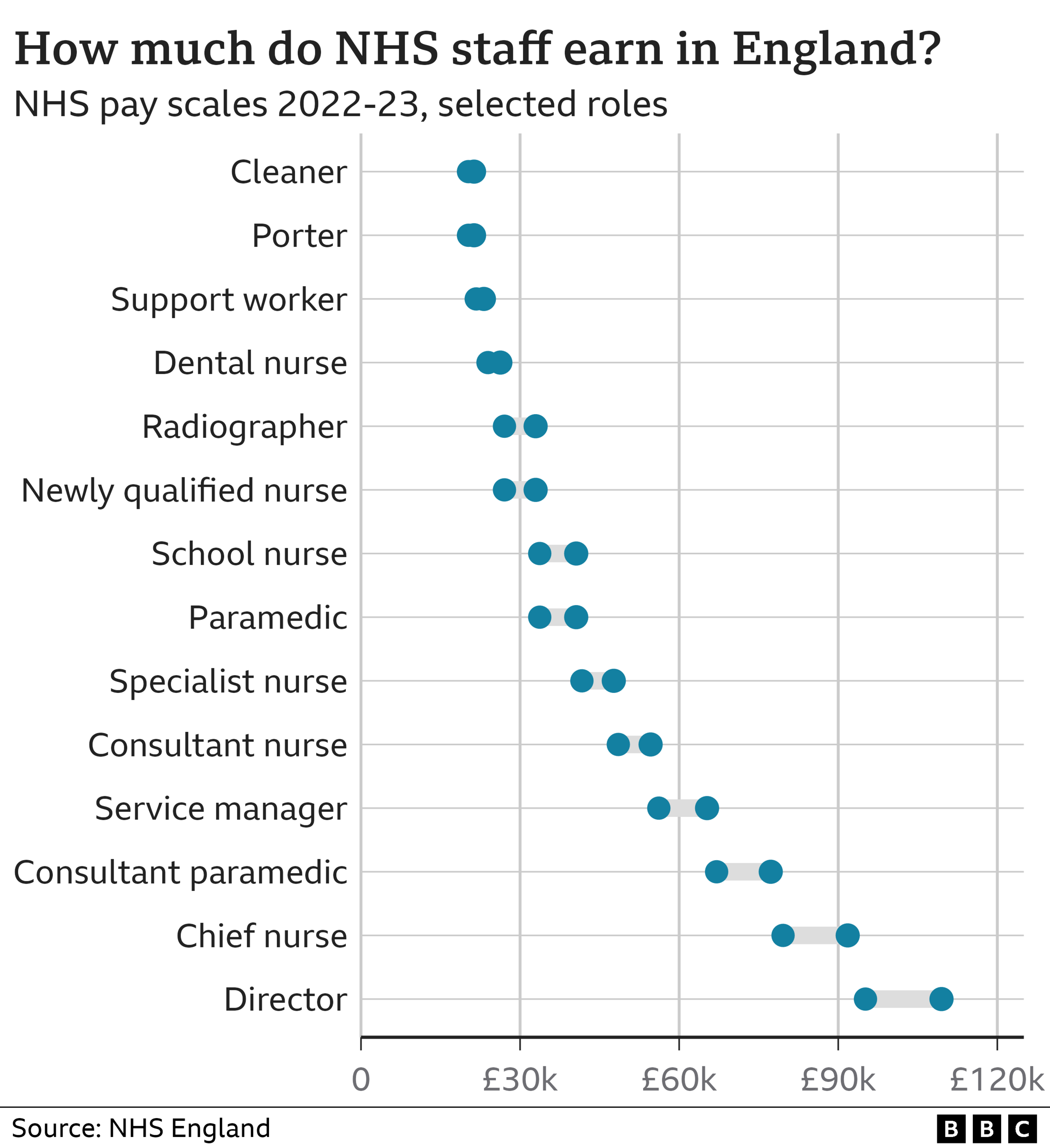
But the government has made it clear it is not willing to move on this year's pay award.
However, one option being explored by Health Secretary Steve Barclay is backdating the 2023-24 rise to January. It would normally kick in in April.
This has already been tabled in Scotland, leading to NHS strikes being halted for further negotiations - although staff there received a 7.5% pay rise this year.
The Treasury has not agreed to the idea.
Prime Minister Rishi Sunak said his government wanted a "constructive dialogue" with trade unions amid a wave of strike action.
But he added: "We do also need to make sure that those conversations are based on what's reasonable, what's responsible for the country as we tackle inflation."

What patients need to know
People seriously ill or injured, and whose life is at risk, should call 999 as usual, or call 111 for non-urgent care
Other services, such as some cancer treatments or urgent testing, may be partially staffed
More routine care is likely to be badly affected, including planned operations such as knee and hip replacements, community nursing services and health visiting
Anyone with an appointment not already rearranged should attend at their allotted time
GPs, community pharmacies and dentists will be unaffected
Your device may not support this visualisation


Are you a nurse? Have you voted on strike action? Get in touch.
WhatsApp: +44 7756 165803, external
Tweet: @BBC_HaveYourSay, external
Please read our terms & conditions and privacy policy

Related topics
- Published22 December 2022
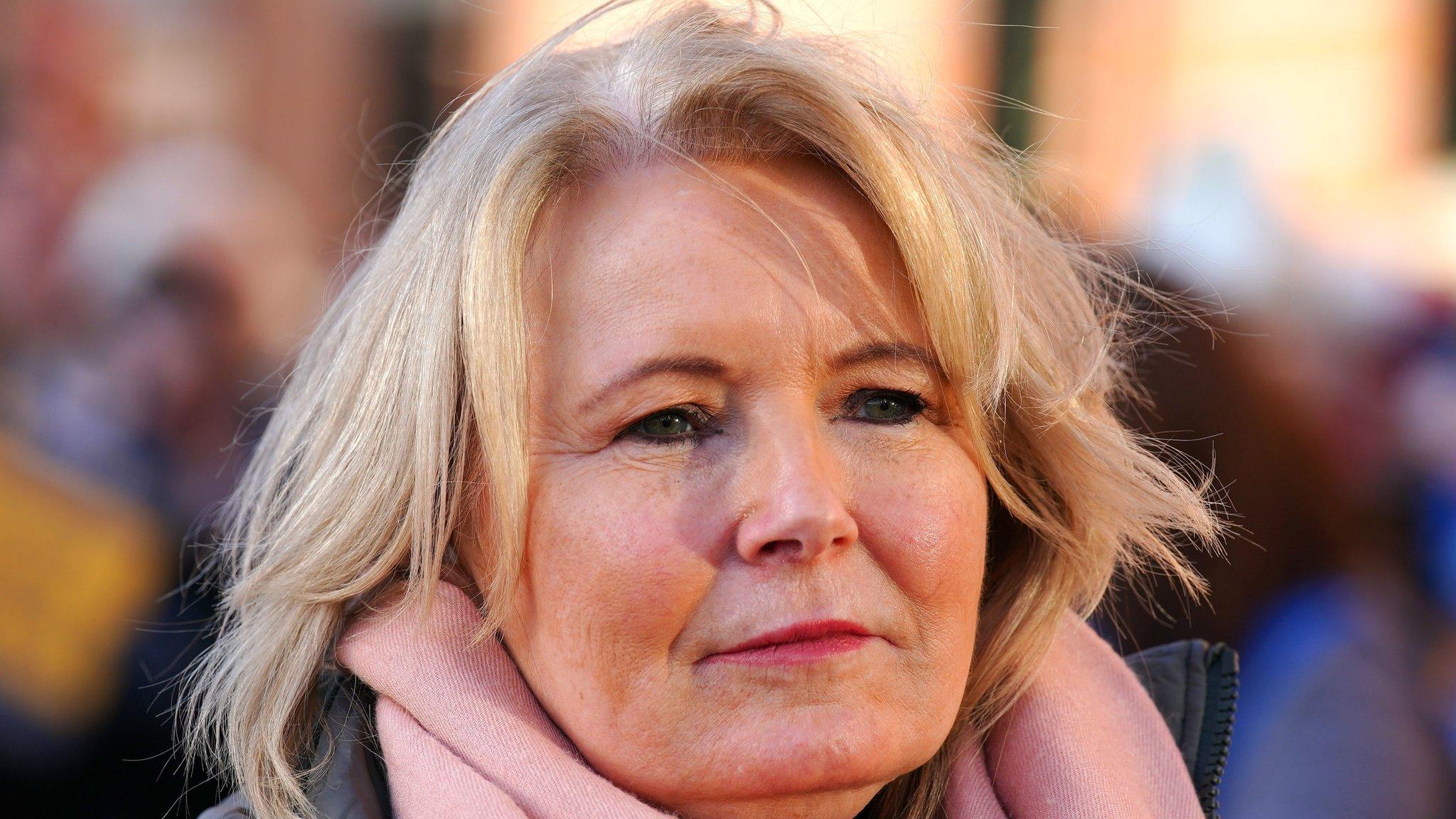
- Published7 February 2023
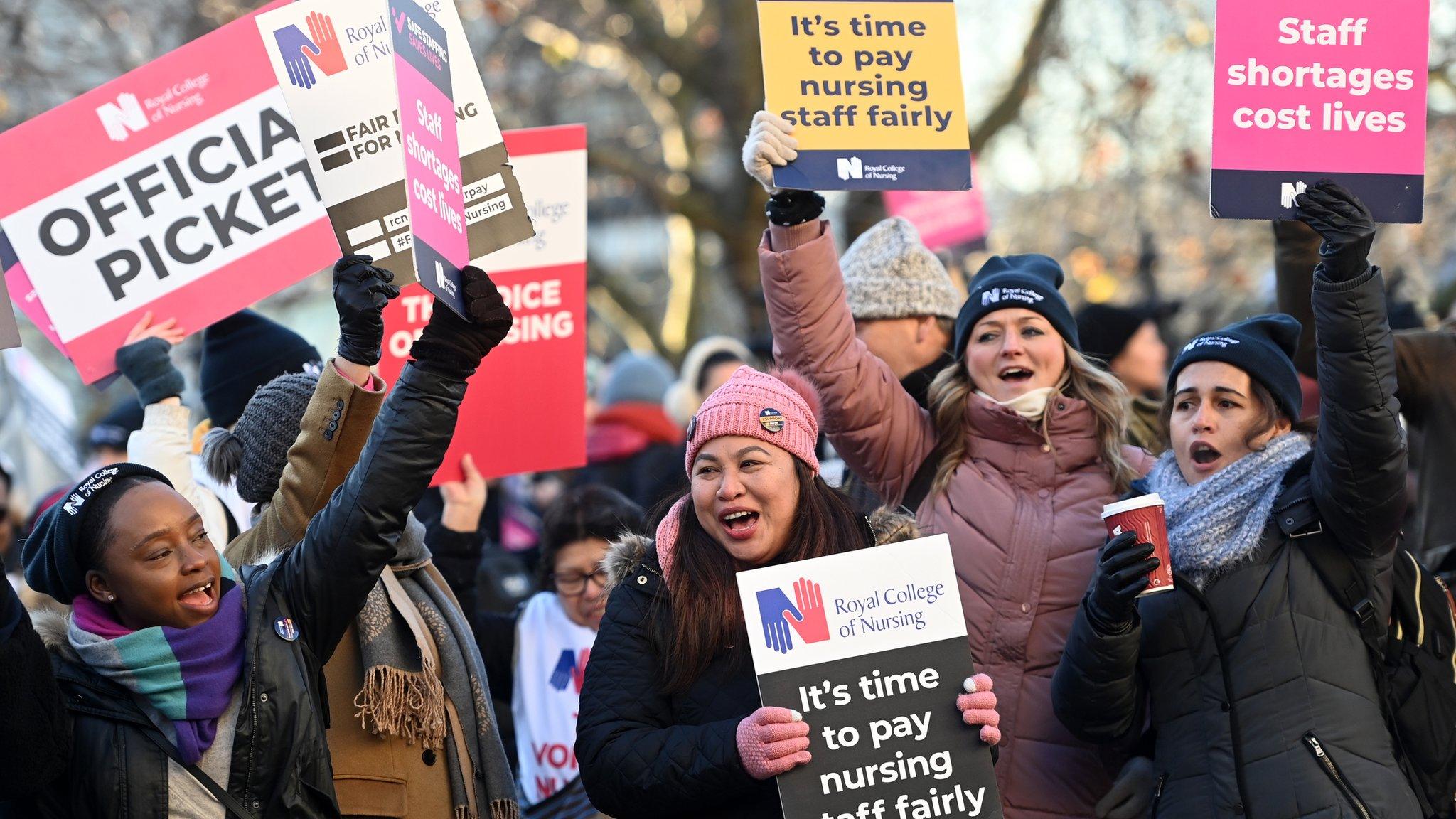
- Published23 December 2022
